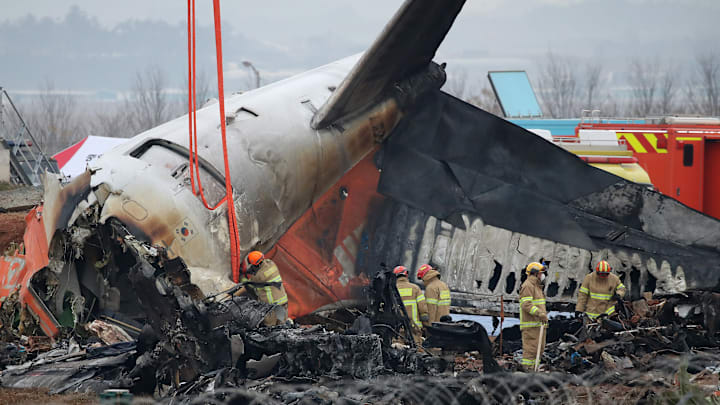The aviation world was recently shaken when a Jeju Air flight was forced to make an emergency landing, raising critical questions about aircraft maintenance and passenger safety. The incident has sparked conversations about the airline industry's commitment to rigorous maintenance standards and the broader implications for travelers.
What happened?
Jeju Air Flight 7C 2216 took off from Bangkok, Thailand, and was on course for its scheduled arrival at Muan International Airport in southern South Korea on Sunday. The Jeju Air flight was en route to its destination when the crew detected an issue with the aircraft’s engine. Following protocol, the pilot executed an emergency landing. Following an unsuccessful initial landing attempt, the Boeing 737-800 was alerted by ground control of a potential bird strike.

Emergency landing
The aircraft then ascended once more to prepare for a second landing attempt. Minutes later, the crew issued a distress signal and attempted a landing on another runway. The plane landed without deploying its nose gear, skidded off the runway, and crashed into a concrete fence, erupting in flames. Only two crew members from the tail section survived.

Aircraft maintenance: a critical component
Airlines operate under strict regulations that mandate regular inspections and maintenance. However, incidents like this bring attention to potential lapses in execution. Frequent travel demand and cost pressures may sometimes lead airlines to prioritize operational efficiency over meticulous upkeep.

Passenger safety and trust
This incident has caused some passengers to reconsider their trust in low-cost carriers, which often face scrutiny over maintenance practices. For Jeju Air, a leader in the South Korean budget airline market, this serves as a crucial moment to reaffirm its commitment to safety and transparency.

How incidents like these impact the industry
While Jeju Air’s swift action and adherence to safety protocols prevented a disaster, such incidents can lead to heightened regulatory inspections and stricter maintenance guidelines across the industry. For travelers, it’s a reminder to research airline safety records and consider policies that prioritize safety over savings.

What’s next for Jeju Air?
The recent Jeju Air incident has raised significant concerns about aircraft maintenance and passenger safety. As investigations unfold, Jeju Air will likely face public and regulatory scrutiny. The airline must balance rebuilding passenger trust with addressing gaps in its maintenance procedures.

Emergencies like this highlight the importance of airline accountability and the critical role of maintenance in ensuring safe travel. For passengers, staying informed and choosing airlines with strong safety records remain vital. Choosing carriers with a proven commitment to safety not only provides peace of mind but also underscores the collective demand for higher standards in air travel.
